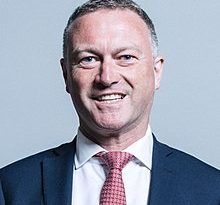Sarah Teather – 2010 Speech at the Every Disabled Child Matters Campaign
The speech made by Sarah Teather, the then Children’s Minister, on 25 November 2010.
It’s a huge honour and a privilege to be able to speak to you today.
It’s great to see so many Parliamentary colleagues, voluntary sector partners and disabled children and their families here supporting your campaign.
And I’m glad that I was able to hear others speak before making my response. So often, even in opposition, you’re sometimes only able to stay for a short time at these kinds of events. This is exacerbated even further when you become a minister, but it’s really important to listen to the views of parents and young people.
What Gail said just a moment ago about the challenges facing families with disabled children encapsulates the experience of many families that I meet.
As a constituency MP, I have met many families with disabled children. For some of these families, services are working well and meeting their needs. But for others, it can be a real battle to get the support that they need.
And in my own constituency I have supported a number of campaigns locally on behalf of disabled children and their families.
I’ve got two key messages for you this afternoon.
The first is this: disabled children are right at the heart of what this Government is doing. This is shown by the Childhood and Family Task Force which has recently been announced.
Both the Deputy Prime Minister and the Prime Minister will be taking part in that Task Force, so you can see that there is buy-in at the very highest levels of this Government to support disabled children and their families. And I’m also pleased that I will be attending this Task Force to make sure that the voices of disabled children and their families are heard.
The Task Force will look at the challenges that face disabled children and their families. Challenges like poverty and relationship breakdown.
And I’m glad that Gail also talked about the importance of participation.
That’s because I’m pleased to announce to you today that I will be launching a Green Paper in the autumn that will look at a wide range of special educational needs and disability issues.
Over the summer I want to work with the voluntary sector, experts on special educational needs and disability, and parents, to make sure that we get the questions to address right.
Participation will be central to the success of this Green Paper.
We’ll be looking at things like parental choice. This will mean looking at ending the bias towards mainstreaming, but that does not mean limiting mainstream provision for children with SEN and disabilities. It’s about recognizing that each child is different and individual.
We will also need to look at educational attainment – how to support children and young people with a broad range of needs to raise their levels of achievement.
There is also the area of transition for young people, where there has been too little work. We need to consider how to support better opportunities for young people in this stage of their life.
Finally, we also need to look at assessment of disabled children and address the bureaucratic mess that families face to get their child assessed.
But I’d also like to respond to Lord Rix by reassuring you that we won’t be dismantling everything in this area.
So we will be moving forward with the Short Breaks duty that you mentioned. And I know that the Short Breaks duty is very much due to the hard work that you have been involved with over the last few years.
Aiming High for Disabled Children is making a huge difference to disabled children and their families.
As Lord Rix mentioned, we are also pleased to be investing more in Short Breaks from next year.
I want to leave you with one final message.
You will all be aware that these are difficult economic times – but I want to assure you that the needs of disabled children will be at the heart of this Government. We are committed to improving choice and experience of families with disabled children.
I know that you will lobby hard and hold us in Government to account for improving the support to disabled children and their families. This is a crucial way in which many of the improvements that have been achieved so far have been realised.
I hope, trust and expect that this will be the start of our conversations as you play a key role in helping to shape the Green Paper over the coming months.



